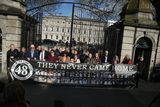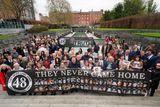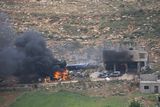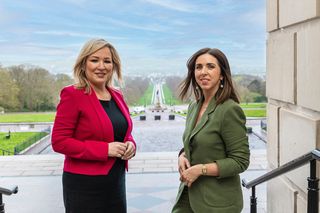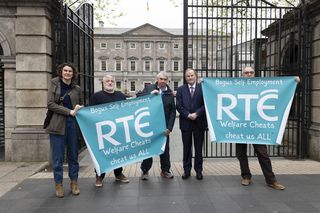Vicky Phelan’s death is stark reminder of medical negligence
The late Vicky Phelan, who received incorrect smear test results in 2011 and was subsequently diagnosed with cervical cancer in 2014. Photo: Fergal Phillips
There is widespread regret surrounding the death of Vicky Phelan.
Her smear test results were examined in a US lab, and the acknowledgement of a great woman is testimony to her heroics in life while facing death, which was of someone else’s making.
We’re told medical tests are carried out with supreme expertise far from Ireland at labs and hospitals in countries such as the US. We’ve learned nothing from the disasters of the Aids and hepatitis C tests, which were also conducted overseas and resulted in needless deaths here.
The first time I heard the term hepatitis C in the early days was on the Irish radio news, with the assurance that it was “not serious”.
Why can we not have dedicated facilities in this country to analyse cancer-causing bugs and viruses, which could foster a real design for care of Irish patients?
Here’s why. The care of patients is done on the cheap and too many vital medical tests are not carried out at home because of appalling cost-saving neglect. Will this change?
Robert Sullivan, Bantry, Co Cork
Some religious orders knew how to conduct themselves
My brother and I spent six years boarding at a secondary school run by a religious order.
In order to give us this opportunity, our parents had curtailed their social life and lived simply. At all times we experienced respect, encouragement and the professional care one would expect from such an institution.
Eamon Fitzpatrick, Strandhill Road, Sligo
Delaying compensation for abuse victims is immoral
Reading international reports of child sexual abuse by priests and monks of the Roman Catholic Church is bad enough for the ordinary reader, but it must be very difficult for those who suffered physically and psychologically.
It’s disgraceful that victims were ignored, denied justice and treated with utter disdain. But the manner in which the church is delaying compensation is immoral.
In recent days in Australia, there have been reports of how difficult the Archdiocese of Sydney is making it for abuse victims to receive recompense. They are being denied justice at every turn, with the excuse that “most of the offending clergy are dead”. What I cannot comprehend, nor will I accept, is that the church hierarchy has the right to deny those who were abused proper recompense.
But the question that must be posed to the church’s hierarchy is: Do any of them actually believe the word?
Because the message coming from them is that they have no trust in God, preferring to serve the material institution they call “the church”. Jesus did say: “Destroy this temple and I will rebuild it in three days.”
Declan Foley, Melbourne, Australia
It’s naive to think child abuse will never happen again
In 1952 at the age of four, in a well-known national school, a class of 30 children got “one on each hand” with a cane for running down a corridor .
Wielding the canes was a little nun who put so much effort into each stroke that I could see her high-heeled brogues, and now when I see the Wicked Witch of the West in The Wizard of Oz, I am reminded of the infamous sister.
However , as we all got the treatment, we didn’t take it personally. But the question to ask is: What was the thinking behind the widespread abuse of children and why did the practice vary among schools?
Now we are talking about a range of inquiries that will be good for the lawyers and provide plenty of copy for the media but add nothing new.
It’s more important to continue to apply and improve the systems that make it difficult for children to be sexually abused, but, as this has been going on since time began, the potential is always there. Just saying that this should never happen again is naive.
Dr Michael Foley, Rathmines, Dublin 6
World Cup shows we should not tolerate discrimination
It is regrettable that the forthcoming World Cup in Qatar has become a divisive event in international relations.
Sport is a bridge for cultural commun- ication, peace, reconciliation and tolerance and a vehicle to foster political, religious and cultural amicability.
It is also time to use sports to promote healthy lifestyles, speak out against discrimination and raise awareness of poverty and other societal ills.
Dr Munjed Farid Al Qutob, London
Join the Irish Independent WhatsApp channel
Stay up to date with all the latest news
